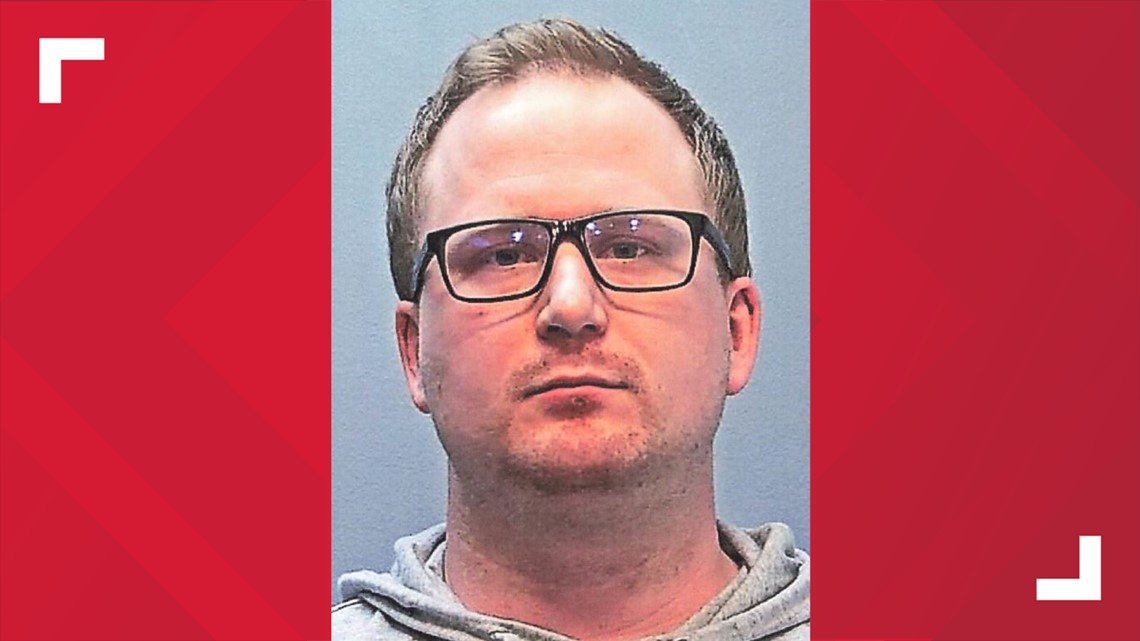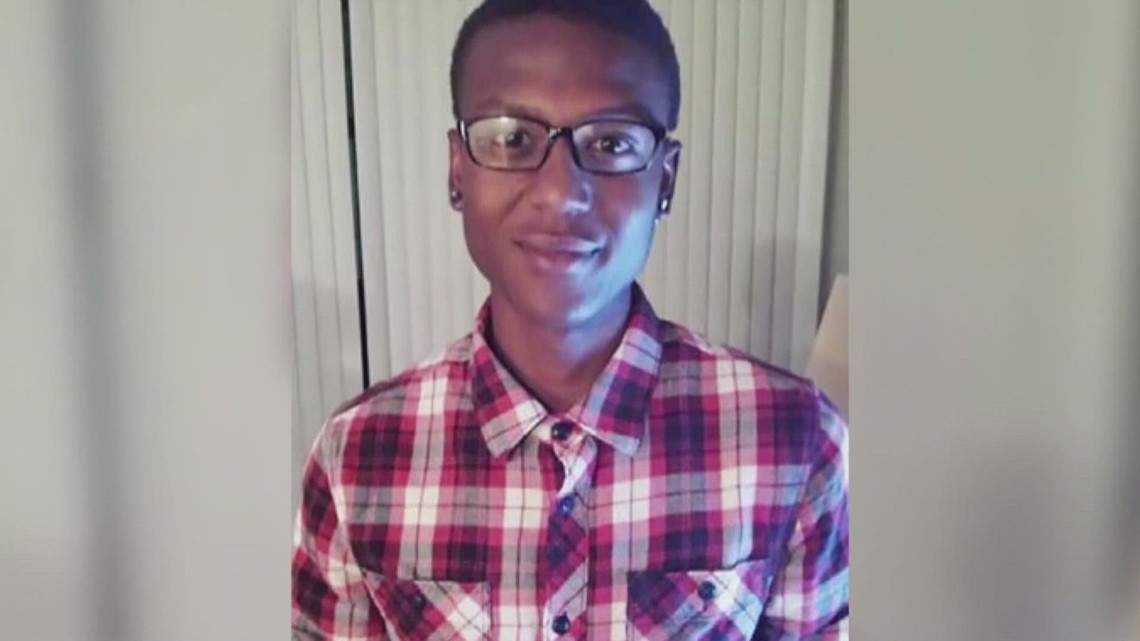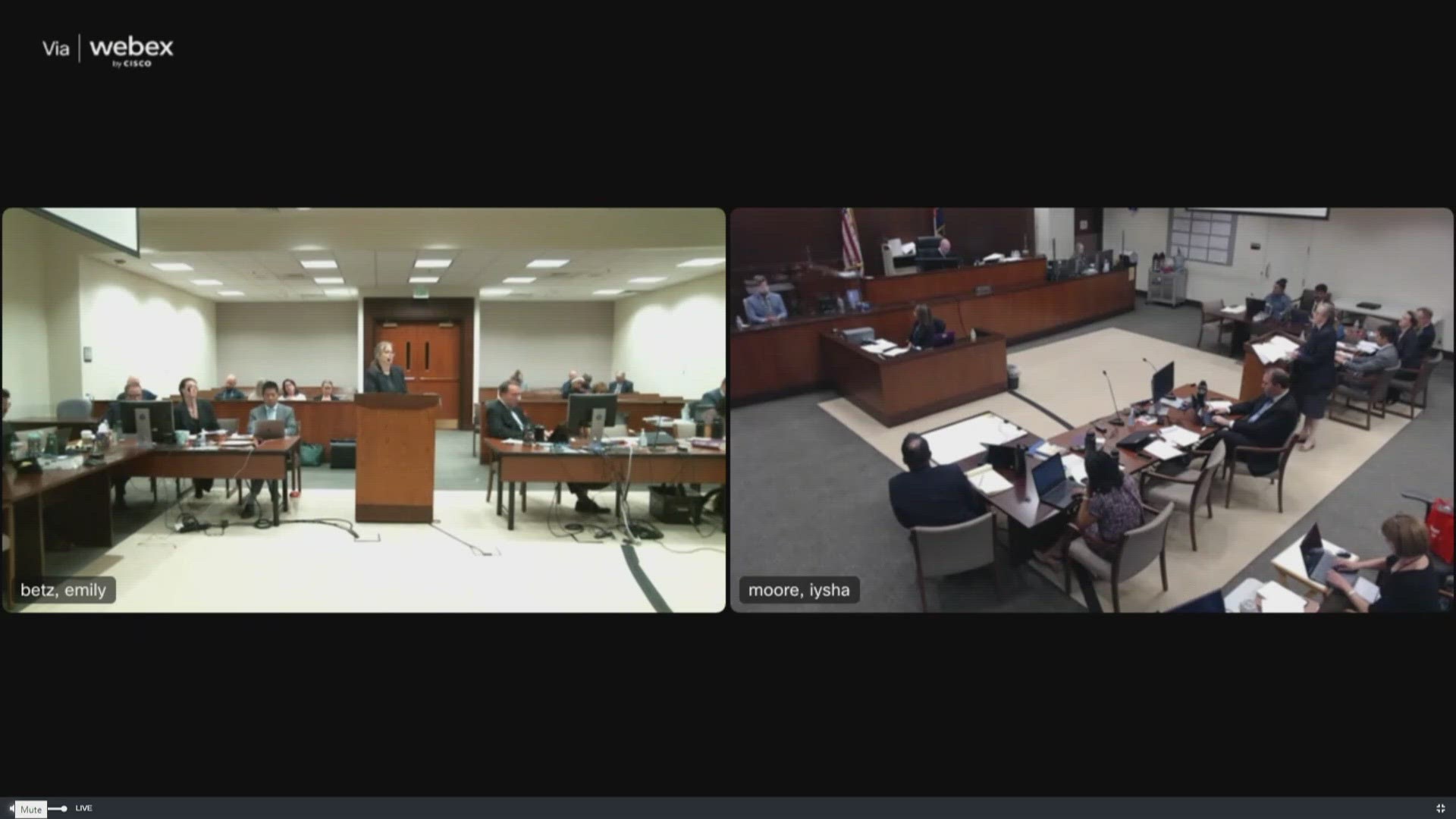BRIGHTON, Colo. — Before paramedics injected Elijah McClain with the sedative that killed him, he was already in a potentially life-threatening situation -- vomit in his lungs, low oxygen levels in his bloodstream, and a buildup of acid throughout his body.
That assessment came Wednesday afternoon from a doctor at National Jewish Health, testifying in the trial of suspended Aurora police officer Nathan Woodyard, one of five first-responders indicted by a statewide grand jury in McClain's 2019 death.
Dr. David Beuther, who was certified as an expert in pulmonary and critical care medicine, said it was clear that after police subdued and restrained McClain, his medical condition went downhill fast. That was before paramedics gave him the sedative ketamine.
"He was already sedated -- he was not responsive," Beuther said. "He was not very interactive, and in fact if he were a patient at the time he was on the ground, right before the ketamine was given, he would need to go to the hospital and likely the intensive care unit because he is sick."
Woodyard faces a single count of reckless manslaughter.
He stopped McClain following a 911 caller’s report that he was wearing a mask and appeared to be “sketchy.”
At the time, McClain was walking home from a convenience store after buying three cans of tea. He was not breaking any laws and was not armed.
Woodyard grabbed McClain within eight seconds of approaching him, and he and fellow officers Randy Roedema and Jason Rosenblatt subdued and restrained him. In the midst of the struggle, Roedema shouted that McClain had attempted to grab Rosenblatt’s gun – an act the prosecution asserts did not happen.
That statement led the officers to wrestle McClain to the ground, use a neck hold that briefly rendered him unconscious, and handcuff him.
Over several minutes, McClain vomited and breathed in some of it, suffered a drop in oxygen levels and an increase in acid in his body, and was in danger, Beuther testified.
"What’s going on is there are multiple factors that add up together to him severely declining over several minutes here before he even gets the ketamine," said Beuther, who blamed the drug for ultimately ending McClain's life.
Prosecutor Ann Joyce asked Beuther what should have been considered before paramedics administered the ketamine.
"I think at this point you would ask yourself what would be the goal of sedating him at this point," Beuther said. "He’s already beyond any safe goal for anesthesia or sedation before he even gets the drug. […] If the goal is restraint, he’s restrained. If the goal is sedation, he’s already not really with it."
His condition at that point, Beuther testified, was dire.
"He needs a hospital," Beuther said. "He’s a sick patient that needs care with what looks like some life-threatening problems. […] He needs urgent attention in a hospital right now."
Jurors earlier watched extensive body-camera footage of the incident as the trial moved into the first full day of testimony. Jurors saw and heard the confrontation, although some of the footage was of little use because one of the body cameras fell off as the officers and McClain struggled – and it ended up pointed at the sky. Some of the audio included McClain saying repeatedly that he could not breathe and asking for help.
In all, at least nine officers and two sergeants responded to the scene, and the jurors saw footage captured by seven of them.
There is no dispute that an injection of ketamine, given by paramedics, ultimately caused McClain’s death.
But prosecutors also allege that Woodyard violated department policy after he put McClain in a neck hold by, among other things, failing to monitor his health or tell paramedics that he had been rendered unconscious and had vomited.
During cross-examination of Aurora Police Lt. Delbert Tisdale, who oversees the department’s section that manages body camera footage, defense attorney Andrew Ho elicited testimony that a sergeant on the scene did relay information to the paramedics.
He also elicited testimony that for periods of time, Woodyard was not seen in body camera footage that showed McClain and the officers and paramedics around him. Ho also got Tisdale to identify multiple points where two sergeants – superior officers to Woodyard and the others who confronted McClain – were at the scene.
McClain died three days after the Aug. 24, 2019, confrontation.


Then-Adams County District Attorney Dave Young cleared the officers of any criminal wrongdoing. Later, Gov. Jared Polis appointed state Attorney General Phil Weiser as special prosecutor in the case, and he took evidence to a grand jury, which indicted three police officers and two paramedics.
Woodyard’s trial is the second of three for first responders accused of wrongdoing in McClain’s death.
Last week, a different jury acquitted Rosenblatt but found Roedema guilty of criminally negligent homicide and third-degree assault.
The paramedics, Jeremy Cooper and Peter Cichuniec, are scheduled to go on trial in late November.
Sentencing for Roedema is scheduled for Jan. 5. He had been suspended without pay since being indicted in the case, but was fired after being convicted.
Rosenblatt was fired earlier for responding “ha ha” to a photo that other officers took appearing to administer a carotid hold on one another at the scene of McClain’s death.
Woodyard remains suspended without pay pending the outcome of this case. If convicted, he could face up to six years in prison.
The paramedics also are suspended without pay while they await trial.


SUGGESTED VIDEOS: Elijah McClain death

